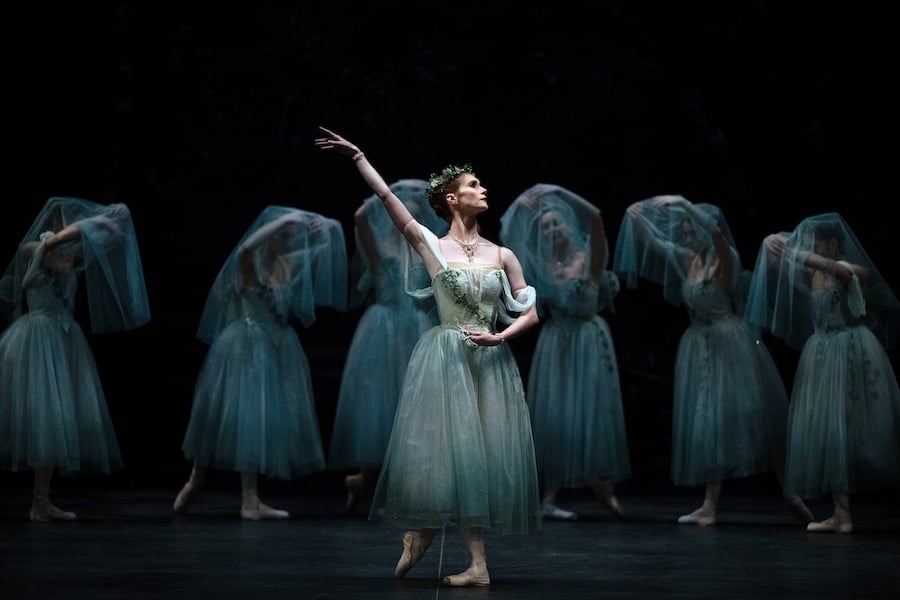Review: Julius Caesar at The Lowry is ‘an ambitious production that rips up the rule book’
- Written by Glenn Meads
- Last updated 2 years ago
- City of Salford, Theatre, Uncategorized

William Shakespeare’s Julius Caesar
William Shakespeare’s Julius Caesar could easily be set in 2023.
The themes of power, corruption and changing allegiances are being played out as we speak. Three Prime Ministers over a period of four years and one of these lasted for one month, and this means that we have seen our fair share of power grabs, arguments and blame games.
Director Atri Banerjee
Director Atri Banerjee made some big and bold choices in his production of Hobson’s Choice at the Royal Exchange a few years ago and it was well received. It managed to appeal to new audiences and still bring in those with familiar with Harold Brighouse’s original 1916 text and not alienate them. It was delivered with respect and a willingness to accept changes were needed.
Here he brings in some additions that work really well. Namely having actors using British Sign Language when in the presence of Lucius (played with delicacy by Jamal Ajala) and placing characters in the balcony and within the stalls means that we see where the rot begins to set in for Caesar, as his grip on reality begins to fade.
The cast delivers their lines with such assuredness that even when the play begins to lose it’s focus by trying to do too much at once, you are drawn to what is being said.
Coriolanus starring Tom Hiddleston
The colour red has connotations of romance, anger and passion, so seeing characters smeared with rich red blood worked wonderfully well in Josie Rourke’s beautifully bleak production of Coriolanus starring Tom Hiddleston.
Banerjee decides to use black blood here and even though it might represent oil and the big corporate companies associated with it, or tar, which is difficult to remove, it stains these character’s souls – aesthetically it looks like they have been out in the garden on a Sunday painting creosote on the fence.
It also means that scenes of murder, death and destruction pass you by without any of the shock and awe that you expect.
Stained shirts represent bodies and by this point, you realise that changes that bring you something different to the norm require the ability to bring you something new in terms of interpretation and feeling. But when a change occurs simply because it can, what you are left with is a stained shirt looking like it is in need of Persil tablet and a hot wash.
Rosanna Vize’s cube-like set spins out of control and succeeds in making the characters look ‘boxed in’ by their determination and narrow views. But watching two stagehands pushing it takes you out of the narrative. If two actors in costume did this whilst speaking to each other, in character – the effect would be less distracting and keep you there ‘in the moment.’
Rosanna Vize and Tomas Palmer’s costumes are so ordinary that some characters look like bank managers who have ditched their ties because they are taking a walk out of the office at lunchtime.
Others look like they have received a smart/casual wedding invite and cannot quite decide how to interpret it. But none of this speaks power.
Nicholas Hynter’s production at the Bridge Theatre in 2018 highlighted populism and rebellion through the dress codes. Here, characters do end up fading into the background, as everything feels too monochrome.
Annabel Baldwin (Cassius), Thalissa Teixeira (Brutus) and William Robinson (Mark Antony) are very impressive, as they really grasp Shakespeare’s text by the scruff of the neck when they have to, and dial it down to convey beauty during the play’s quieter moments. And Niamh Finlay is great as The Soothsayer, who often says what the audience is thinking.
Nigel Barrett is Julius Caesar and his character is done a disservice, as he ends up lost in a play which features flash mob-style dance scenes, complete with overdone panting and projections of images which are far less impressive than the real thing.
An ambitious production
Add a community chorus and screams which make you snigger instead of chill you to the bone, and you are left with an ambitious production which is gutsy enough to rip up the rule book and start again.
As I leave the theatre and see the black blood smeared over the characters, I am reminded of Marmite which divides people. You either love it or hate it. And that’s a good place to finish this review.
Julius Caesar is at the Lowry until 24th June and can be booked here.
- This article was last updated 2 years ago.
- It was first published on 21 June 2023 and is subject to be updated from time to time. Please refresh or return to see the latest version.
Did we miss something? Let us know: [email protected]
Want to be the first to receive all the latest news stories, what’s on and events from the heart of Manchester? Sign up here.
Manchester is a successful city, but many people suffer. I Love Manchester helps raise awareness and funds to help improve the lives and prospects of people across Greater Manchester – and we can’t do it without your help. So please support us with what you can so we can continue to spread the love. Thank you in advance!
An email you’ll love. Subscribe to our newsletter to get the latest news stories delivered direct to your inbox.
Got a story worth sharing?
What’s the story? We are all ears when it comes to positive news and inspiring stories. You can send story ideas to [email protected]
While we can’t guarantee to publish everything, we will always consider any enquiry or idea that promotes:
- Independent new openings
- Human interest
- Not-for-profit organisations
- Community Interest Companies (CiCs) and projects
- Charities and charitable initiatives
- Affordability and offers saving people over 20%
For anything else, don’t hesitate to get in touch with us about advertorials (from £350+VAT) and advertising opportunities: [email protected]

Meet the artist on a mission to change the way we see neurodivergence

Greater Manchester shows the world what true community looks like after disastrous floods

New year clean-up brings neighbours together to remove 500kg of rubbish from our streets

Best bars and pubs to watch the football and live sport in Manchester

The very special toy shop where parents don’t pay a penny is open – and busier than ever















